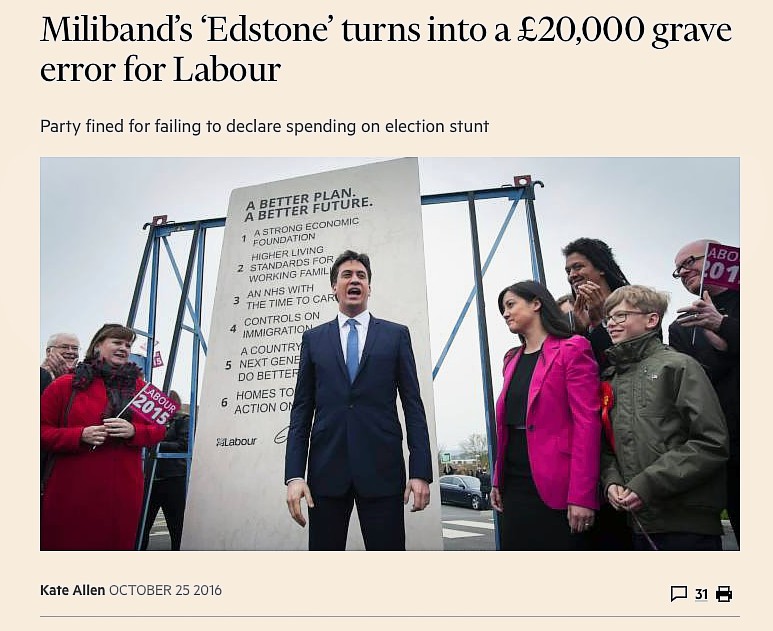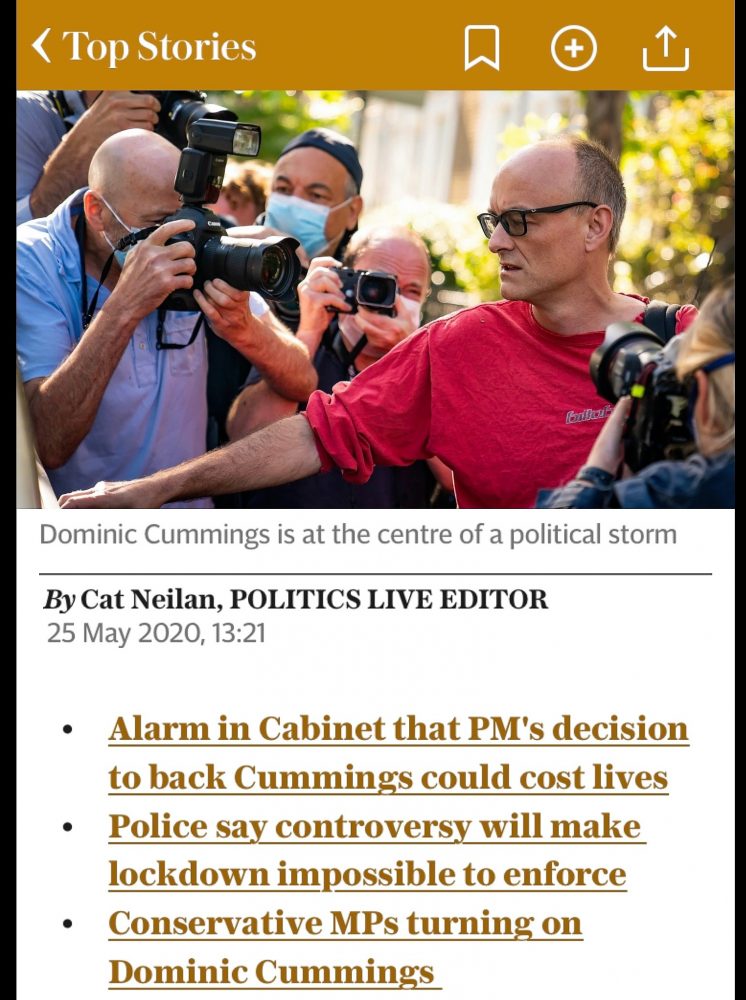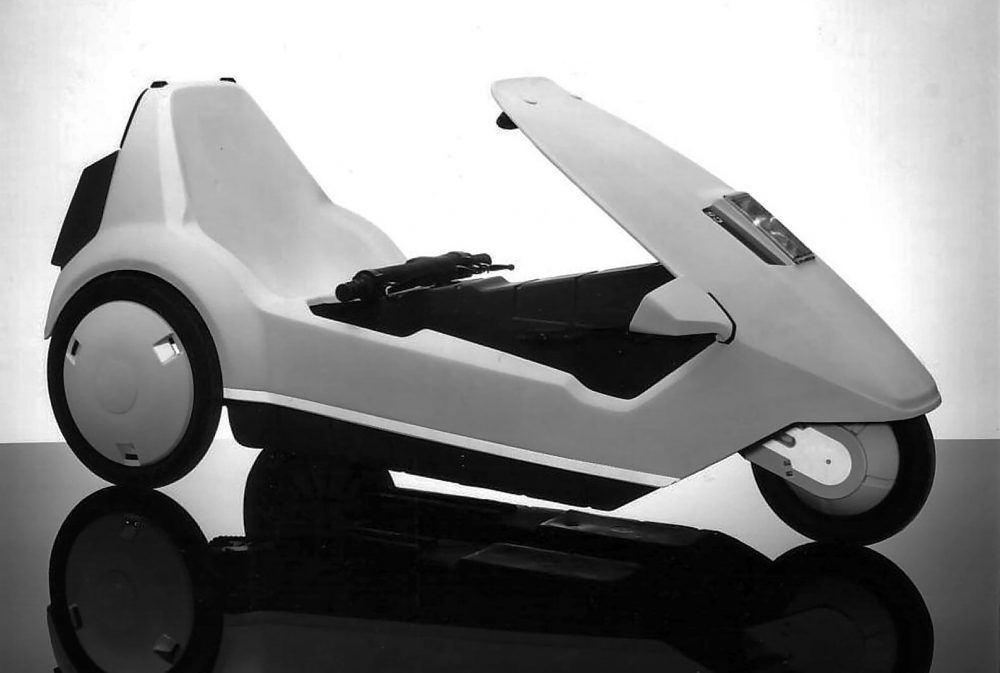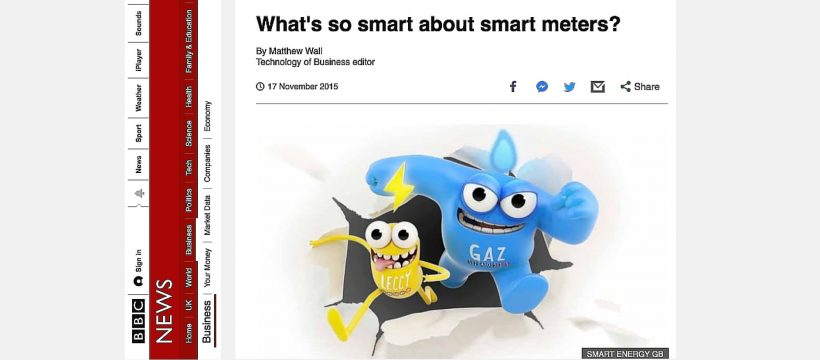As someone au fait with all things digital, I think rolling out smart meters should have been a great idea. So what went wrong?
1) The involvement of politicians
The British Government is a bad brand – not to be trusted. It has a long track record.
In 2008 the smart meter scheme was agreed by energy secretary, Ed Miliband. The plan was to install 50 million by the end of 2019.

Above: Ed Miliband contributes his bit to the national comedy. This article in the FT, 25th Oct 2016, says the Labour Party were fined £20k for failing to declare the £7,614 cost of what was ridiculed as the Edstone to the Electoral Commission.
Whilst writing this article The Dominic Cummings Comedy appeared, to entertain us over the Bank Holiday weekend. The timing was no accident, these stories sell newspapers. News of Professor Lockdown’s tryst appeared just before the VE Day Bank Holiday weekend. Seriously though, why would the public take any notice of what the politicians and their advisors say?

The Cummings comedy in the Daily Telegraph app 25th May 2010
2) Smart meters were mis-sold
Smart meters were sold as though we were all to sit there watching the display instead of television. I get occasional emails from my supplier with statements and sometimes adjustments to the direct debit. That’s all I need to know. The Governments £11 billion budget for the scheme was exceeded in March 2018 with only around 1/3 of the Smart Meters fitted. The Government thought that by by letting householders track energy usage in real time they would save £250 per year. What were people supposed to do – switch off the fridge and wash their clothes in the sink? Some estimates put the annual savings at £11 a year. The meters cost £250 each to install.
I can see that the companies might prefer to have modern meters automatically reporting consumption to them. I have no problem with that – so long as they work properly! The companies would have got round to that eventually without needing public money.

Smart Meters are not in the same category as Clive Sinclair’s C5 (1985), which was simply a daft idea. They should be a natural progression. But…
3) They didn’t work as intended
There was a lot wrong with Smart Meters, and they got a deservedly bad press. They connect to your supplier using a national wireless communication network. It’s like a mobile phone network. You don’t need to have home wifi. But they might be located in a part of your property where there is a bad signal, and some areas of the country are in ‘not spots’. Some were dumb from the day they were installed. Citizens Advice said that some people were having to send in their own readings from the Smart Meter display.
On Wikipedia I read that:
“Ross Anderson and Alex Henney wrote that ‘Ed Miliband cooked the books’ to make the case for smart meters appear economically viable. They say that the first three cost-benefit analyses of residential smart meters found that it would cost more than it would save, but ‘ministers kept on trying until they got a positive result… To achieve ‘profitability’ the previous government stretched the assumptions shamelessly'”.
“An economist at Ofgem with oversight of the rollout of the smart meter programme who raised concerns with his manager was threatened with imprisonment under a law intended to protect national security.”
The target of having every house equipped with Smart Meters has been moved forwards to 2024, and now reduced to 85% of homes. A report in Nov 2019 said that the smart meter rollout will miss its 2024 deadline because the government is underestimating how many people are saying no. I wonder why?
The big fundamental error is they didn’t work as promised.
4) The meters couldn’t switch suppliers
Switching suppliers was supposed to be a way of increasing competition and bringing down prices. The roll-out started in 2013. It was soon discovered that if people changed suppliers their meters stopped working. The MK1 version, which went dumb, was supposed to be phased out in 2017 (bit late?). The deadline was extended to March 2019. After March 2019 a further 900,000 MK1 not-so-smart meters were installed! What planet are these people on? There are currently 16 million Smart Meters installed. 13 million of those are the old type.
4) New suppliers enter the market
Going for the cheapest whatever is often the route to poor quality and unnecessary aggravation. That’s how brands emerged – as a guarantee of quality. The Daily Telegraph found that in the 18 months from Jan 2018 at least 28 retail electricity suppliers went bust. These mostly small companies owed money to wholesalers and infrastructure suppliers. Consumers were left in the lurch, and because the companies were operating a cut-price service, they didn’t have enough people answering emails or the phone.
6) The Government forces the energy companies to run at a loss
An energy price cap was imposed by the Government on companies at the start of 2019. At the end of 2019 NPower had to cut 80% of its UK workforce as losses increased to £142 million during the first nine months of the year. The price cap also means that the companies are unable to spend money upgrading the infrastructure, or computer systems.
The Chief Exec of E.ON said that Ofgem, the industry watchdog, had allowed ill-equipped energy suppliers to start up. Mr Teyssen said: “Larger, more prudent companies have had to pay for the mess left behind by numerous newer entrants that have subsequently crashed out.”
Are the Government trying to achieve power blackouts?
We’d be interested to hear of our readers’ experiences with Smart Meters. Does it work? Have you saved money? Have you successfully switched suppliers?
Update Aug 2021: A friend had gas and electric smart meters fitted to a flat. The way it works is the gas meter sends the reading to a box on top of the electric meter that sends the readings on to the supplier (and handset) – except it doesn’t! He gets emails asking him to take meter readings, as before. The handset he was given does show gas and electricity usage, but the battery in it only lasts half a day. They think he’s going to leave it sitting on a charger all the time. After a couple of days he took it off charge and put it in a cupboard. Meanwhile the smart meter, which is supposed to send the readings directly to E.ON never has. What a waste!
Alan Tucker



The gas and electricity suppliers were facing a need to replace all the meters as they reached end of life and lost accuracy. By selling the advantages of smart meters they got permission to pass the cost of this onto customers rather then funding it as their investment. The government should have stayed out of it and when the suppliers replaced the meters they would obviously have fitted modern ones able to send readings.